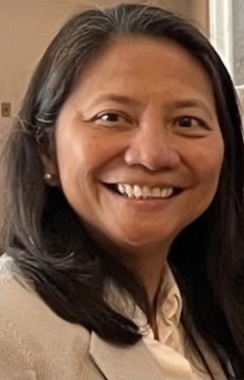LOS ANGELES—The second Philippine-born US citizen to be promoted to the officer rank of General in the US Army, is the AARP’s newest endorser.
Gen. Taguba, or Tony to his friends and family, is a decorated military hero known for his advocacy work to break down racial barriers in the army. Born in the Philippines in 1950, Taguba is the son of a WWII veteran who survived the Bataan Death March. One of seven children, he graduated from Idaho University with a Bachelor’s degree in History. He was commissioned as a 2nd Lt. with the US Army in 1972. After 34 years of active service, Taguba retired in 2007.
Taguba became well-known in the US for his controversial Taguba Report, which was leaked to the press in 2004. The Taguba Report is an internal US Army document that detailed the findings of investigations on the alleged prisoner abuses committed in the Abu Ghraib prison in Iraq. The report took a critical stance on the US Army’s misconduct and negligence in handling the prisoners of war in the facility.
While it is not the central piece of Taguba’s body of work in the Army, the Taguba Report represents one of the key moments in the general’s career. He was praised by both the media and advocacy groups for his report, which was described by The Baltimore Sun as a “scathing” account that “ignited a firestorm.”
The Asian Journal fortunate enough to catch up with Gen. Taguba in a telephone interview, where he talked about his work with AARP and his legacy as one of the most decorated Filipino American war heroes.
Asian Journal (AJPress): You are a decorated US Army general, and well-known for being a strong advocate for breaking down racial and ethnic barriers in the military. Throughout your career, what achievement are you most proud of?
General Antonio Taguba (GAT): First of all, when I retired, I served my country, obviously [sic]. Then I got married to a lovely woman, Debbie from Troy, Missouri. We have two grown children today. My daughter Lizzie who’s married, she’s in the ministry in South Carolina. And my son who’s an Army Captain stationed in El Paso, Texas. He’s been to two wars now, Iraq and Afghanistan. So, we’re both proud of our children. As far as other prideful things, I would say serving with young men and women in uniform. They’re truly inspirational. So that’s probably my other honors.
AJPress: Aside from these honors, these things that make you proud to be who you are today, what else do you consider as your most memorable experience in your years of service?
GAT: Probably being promoted to Major General, which is a two-star. [I was] only the second Filipino American general in our generation to achieve that goal. But more importantly, I was proud to represent our Filipino American community and our overall Asian Pacific Islander community. You had mentioned something about breaking racial divide and [promoting] diversity, that’s true too. Growing up in the Army as a 2nd Lieutenant in 1972, there were not many of us in the ranks. I was basically by myself. I was not going to be intimidated by the other [ethnic groups like Blacks, Hispanics, and Caucasians.] That was the end of the Vietnam war, and a lot of the others in the Army then were associating me with the Vietcong then, and I was not going to have any of that. So I had to pole vault myself over that kind of attitude. All of those lessons learned, I took with me and I made sure that all of the minority soldiers and officers that were in my command were treated fairly and appropriately.
AJPress: How did you get involved with the AARP’s Asian American Ad Campaign?
GAT: That was a surprise to me. I was talking to a friend of mine, former vice president of AARP in multicultural engagement, talking about things in general. He found out I run two marathons a year, I’m an avid runner, I play sports, and things that [help me] stay physically fit. So he asked me if I would be amenable to doing an ad campaign to help promote the idea that [the 50+ adults] really need to understand the aspects and the complexity of taking care of yourself.
AJPress: It seems like the message of the campaign is to highlight the importance of health and well being in the lives of 50+ adults. In your opinion, how important is it for our elders to keep an active lifestyle in spite of their age?
GAT: The cost of health care is expensive. For people who are old, age is progressive. If we don’t take care of ourselves, the cost of health care goes up, and progressively so. I’ve spent time in the military, of course I have insurance. But it doesn’t mean that I [don’t have to] take of myself. It doesn’t mean that [I don’t have to be] physically or mentally fit. And I think it’s very important for us if we want to live a long life. In our community today, people have diabetes, people have heart problems, people have high cholesterol. They have hypertension and the like. Well, they can help reduce that if they just exercise, eat healthy, maintain a positive lifestyle, exercise their brain every so often. I think it’s very important.
AJPress: Do you have any suggestions on specific exercise routines for our 50+ adult readers?
GAT: For those who don’t like to run, they can brisk-walk for 45 minutes. That’s cardio. It also helps you exercise your brain because you’re trying to think about [the exercise], or reflecting on something else. You can add music in if you have an iPod, or what have you. Just have a nice walk. For the runners, you can run as long as you want, and as far as you want, and as slow as you want—unless you’re preparing for a race. Running for about 1 or two miles, that’s pretty good because that helps [you build your cardio endurance.] Dancing is another one, it’s a form of exercise. Playing a sport like golf or tennis. Or use a treadmill. I see a lot of seniors today, go to the gym to condition their muscles. You have to be consistent though. You have to do it three or four times a week just to keep yourself going. And before you do any exercise, it’s important to have something in your stomach, and drink a glass of water. No longer than after 20 minutes of exercise, you’re supposed to put something in your stomach as well.
(www.asianjournal.com)
(LA Weekend October 19-22, 2013 Sec B pg.1)





